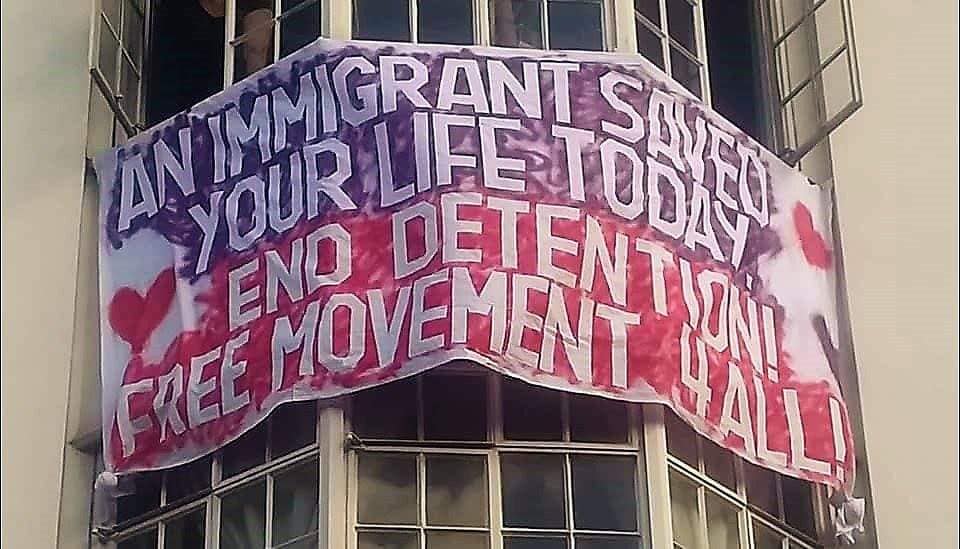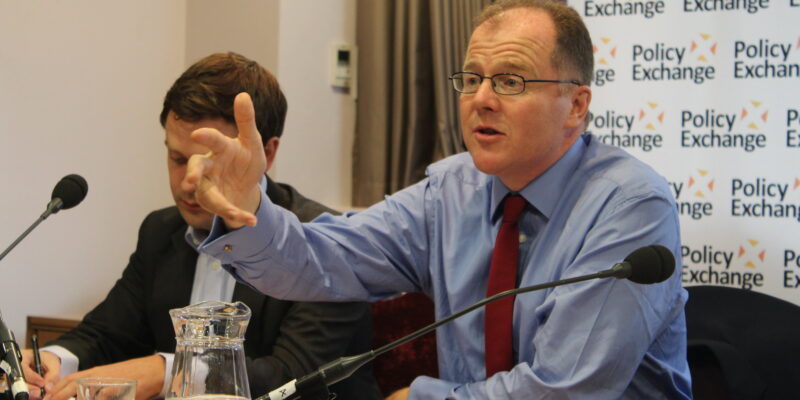Fortress Britain, Fortress Europe: working hand-in-hand to keep migrants out
In a guest post for Brexit Spotlight, Sabrina Huck argues that safe, legal routes – not militarised border policies – is the only way to prevent more tragedies in the English Channel.

Last week’s news was dominated by tragedies occurring at European borders: firstly, there is the ongoing situation in the forests between Belarus and Poland where, since the start of November, approximately 2,000 people seeking entry into the EU were left stranded, some of whom have died in the plummeting temperatures; and, then, on Wednesday, the capsizing of a small boat in the English channel, which cost the lives of 27 people.
So far, the political reaction to this humanitarian crisis is firmly focused on preventing the movement of people – instead of facilitating safe and legal routes, refugees and migrants at the EU external border are being framed as a security threat that needs to be combatted.
This securitisation approach is evident in the language the EU has deployed to describe what is happening at the Polish-Belarussian border: a ‘hybrid war’ in which people are weaponised by a hostile regime that seeks to undermine the European Union. Poland, therefore, is the first line of defence against the attack and ‘European solidarity’ is not about supporting the vulnerable, but about enforcing the strength of the border.
The European Commission is currently in discussions with Latvia, Lithuania, and Poland to make available €200 million for border management, and so-called ‘rapid border intervention and return intervention’ by Frontex. This is in addition to the €3.5 million allocated to facilitate ‘voluntary returns’. As many of those at the Polish border have been identified as Iraqi nationals, the EU has engaged in diplomatic efforts and pledged financial support to the government of Iraq to organise reparation flights. This has also led to the suspension of flights between Baghdad and Belarus since August, with the intention to prevent people making their way to the border from there.
In contrast to the huge efforts put into preventing people from coming and deport those already here, only €700,000 has been allocated for humanitarian assistance to organisations working with refugees on the ground.
Another part of the European strategy is the clampdown on ‘people smuggling’. Once more the Commission is missing the trick that, to prevent organisations from taking advantage of refugees and migrants by selling them expensive and dangerous services to bring them to their chosen country, the easiest solution would be to open safe and legal routes. But instead, Commission President Ursula von der Leyen has announced plans for a new legal framework to allow the EU to adopt measures such as sanctions against transport operators that engage in, or facilitate, the smuggling or trafficking of people into the European Union.
Brexit Britain: all too familiar
The discourse surrounding the English Channel mirrors many of these aspects. An emphasis is placed on ‘criminal gangs’ facilitating people smuggling, rather than thinking through ways to allow people to come here safely and legally.
Among the victims of last Wednesday’s tragedy was a young woman who sought to reunite with her fiancé in Britain. A question politicians should be asking themselves is why the immigration system seems so impossibly harsh that not even those with family ties have a normal option to join their loved ones, and instead are forced to put their lives at risk. People smuggling will exist as long as no other options exist. This is the simple reality.
The British government, arguably most concerned about the optics of Channel crossings, rather than human lives, is now pushing for an externalisation of the UK border to France by proposing military assistance to patrol French beaches or to deploy police to help make arrests. The UK wants to wash its hands off any responsibility for the situation as they argue that France is a ‘safe country’ so refugees should remain there. Dangerous ‘pushback’ proposals floated as part of the Nationality and Borders Bill are linked to this belief that France must take back those who attempt to cross the channel back.
It is not the first time that the UK attempts to use its military to externalise its own border by strengthening Fortress Europe: earlier in November the Ministry of Defence deployed a small group of soldiers to support Polish forces with repairs and toughening of the border fence to Belarus. Whilst Poland took Britain up on its military support, the French are more reluctant to consider joint military patrols.
In response to the Channel tragedy, a meeting between the immigration ministers of France, the Netherlands, Germany, and Belgium was called on Sunday to discuss the situation. The European side has now promised to increase surveillance of the operations of traffickers and the channel, including by deploying an aeroplane to fly across the area day and night. Patel did not take part in the meeting as she had been disinvited after yet another diplomatic row with France when a letter from the Prime Minister to President Macron was published on Twitter.
It is evident that neither France nor Britain want to take responsibility for people in Calais but as long as no country accepts a humanitarian solution, the further securitisation and militarisation of European borders will continue to kill.
Sabrina Huck is a writer, activist and political consultant based in London.
November 29, 2021
Brexit Spotlight is run by Another Europe Is Possible. You can support this work by joining us today. The website is a resource to encourage debate and discussion. Published opinions do not necessarily represent those of Another Europe.





